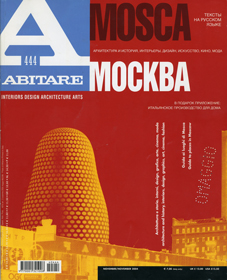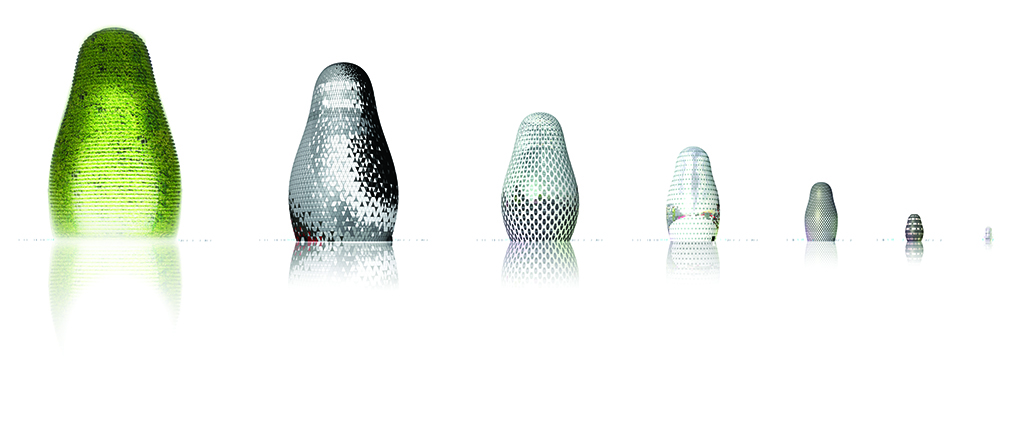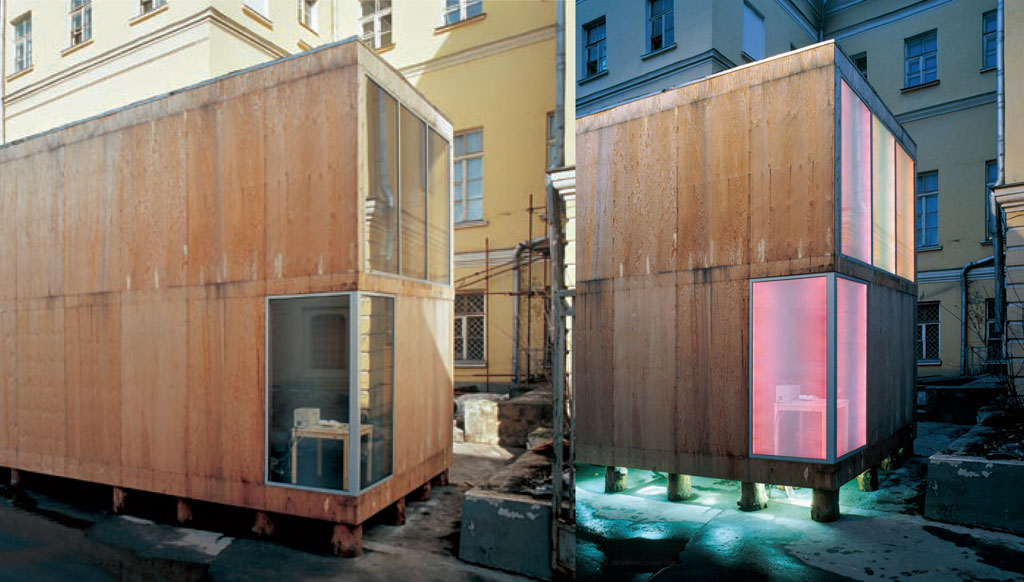
Ноябрь 2004November 2004

About MATREX and IMMATERIALBOXAbout MATREX and IMMATERIALBOX

Matrex, project, 2000 – 2004 (with Sergey Morey)
A typological study for a national identity and new building scale for the urban landscape, Matrex — etymological alloy of the words mater, matrix and matreshka — belongs to a series of experimental projects involving the creation of a recognisable language for the new Muscovite architecture, Imagined in the riverside landscape, the construction can assume various dimensions (from XS to XXL, in keeping with the by now canonical Koolhaasian system of measure), with different structural materials chosen on the basis of specific function and context.
Matrex, project, 2000 – 2004 (with Sergey Morey)
A typological study for a national identity and new building scale for the urban landscape, Matrex — etymological alloy of the words mater, matrix and matreshka — belongs to a series of experimental projects involving the creation of a recognisable language for the new Muscovite architecture, Imagined in the riverside landscape, the construction can assume various dimensions (from XS to XXL, in keeping with the by now canonical Koolhaasian system of measure), with different structural materials chosen on the basis of specific function and context.

IMMaterlalBOX, Moscow, 2003
The pavilion in the courtyard of the Shchusev Museum of Architecture is part of an ironic exercise in “industrial espionage”, designed to bring the public in contact with high-tech materials through events and installations, Here, common plywood is combined with the sophisticated emdelight, a luminous glass invented by German artist Thomas Emde. The project addresses the different perceptions of space rendered possible by this material, whose colour, transparency and luminosity are all variable. Formally, the pavilion recalls the crates used by museums to ship precious works of art.
IMMaterlalBOX, Moscow, 2003
The pavilion in the courtyard of the Shchusev Museum of Architecture is part of an ironic exercise in “industrial espionage”, designed to bring the public in contact with high-tech materials through events and installations, Here, common plywood is combined with the sophisticated emdelight, a luminous glass invented by German artist Thomas Emde. The project addresses the different perceptions of space rendered possible by this material, whose colour, transparency and luminosity are all variable. Formally, the pavilion recalls the crates used by museums to ship precious works of art.